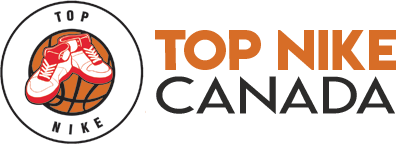When setting up your site with SEO Idaho, be aware of how search engine spiders view your page. For example, while using images for navigation links may look attractive to human viewers, it will hurt your search engine rankings. Your rankings, and your reputation for users with accessibility issues, will be increased if you use primarily text or at least provide a text alternative for image links.
Taking advantage of the opportunities that SEO presents means taking advantage of the various content directories scattered across the web. These great sites are specifically for submitting articles and reaching the public’s eyes. Having well written and targeted articles submitted to these sites will mean the right people read your article and more potential sales are created.
Make sure to put lots of keywords throughout your site. The title and the page headers are by far the two most important spots to put these tags. Make sure they are appropriate and fitting to the site, but use lots of descriptive words people might use when trying to find what you have available.
Make sure your keywords are both relevant and specific to site content. A tag containing a more generic keyword phrase (i.e.: Classic Rock Music) will face very heavy competition in the SERP, where as something more specific (i.e.: Rolling Stones Music) will likely get your higher up the list. A higher ranking is one way to increase traffic to your site.
Avoid flash as much as possible if you want to enhance your search engine optimization. Flash is not accessible to the algorithms search engines employ, rendering the content you create almost useless from a search engine optimization standpoint. Instead, use images and text menus as these are easily detected and factored into your ranking on search results pages.
A few major, web-based sites have combined to start a new website, Schema.org, to help with search engine optimization. The site will list common vocabulary. This site will show webmasters and developers SEO terms, and teach them how to improve their ranking with the search engines. The goal of this site is to be a resource for site developers.
Keep your website fresh and relevant with updated content on a daily basis, or as often as is possible for you. Make goals, weekly and daily goals for yourself and stick to them. Search engines judge sites with a fresh stream of content that is posted regularly as more valuable than those that only update the content occasionally. Sites that always have fresh content rank higher than those with stale content.
Utilize the AdWords tool kit from Google, to increase the effectiveness of your keyword selections for SEO. By using these tools, you can increase traffic to your site and increase traffic that translates into sales. You can search by specific keywords or type in a specific URL to discover the keywords that drive those particular searches. Choosing effective keywords boosts your ranking in search engines and increases your sales.
To optimize your search engine rankings, never publish the same article in more than two locations on your site. Search engines ding your ranking for duplicate content, so it is best to avoid repetition whenever possible. Use one article URL for the best results, as using multiple links for the same content weakens the power of the content for SEO purposes.
Get to know other webmasters. Once you get to know a few of them, offer to include a link to their site if they will include one of your links on their site. Be sure that the company that you are getting into bed with has a positive reputation as you do not want to be drug down by one that does not.
The ultimate success of your search engine optimization effort depends on the quality of the content of your website. The search engine doesn’t buy your product or use your information. Real people visiting your site will buy your product and use your information. Make your content of value to the real people who visit your site. Inbound links are the result of great content.
Learn HTML before trying to write your own page. If your code is written incorrectly then the search engines will not be able to read it and it won’t get added to the index. You can validate your HTML to make sure that there are no issues in your coding of the site.
For search engine optimization, you need to add keywords to your website. It is important that the keywords be both specific and broad, and also use synonymous words to expand your keyword list. The more keywords that your site has, the more likely that it is to show up on online searches.
Use the H2 and H3 tags sparingly as they can trick search engine spiders into thinking your website is spam. The actual algorithms and mathematical equations used by search engines to determine page rank aren’t entirely known, but many believe they have at least a good idea. The space between header tags seems to be an indicator of a spam site, so only using one (H1) can avoid that problem entirely.
When linking to content on your own website, use absolute links. These are links that never change, and typically have keywords in the file name. Also avoid using HTTPS unless you absolutely need to, like on an ordering page. If you avoid both of these pitfalls you’ll get more link juice out of incoming links.
It’s all about what the websites want in SEO, and that’s what you need to realize. It doesn’t matter if you’re a simple blog or a legitimate business; you still need the proper optimization if you hope to achieve a high ranking. What you’ve read here will help you achieve that, but you still need to put the information to good use.
